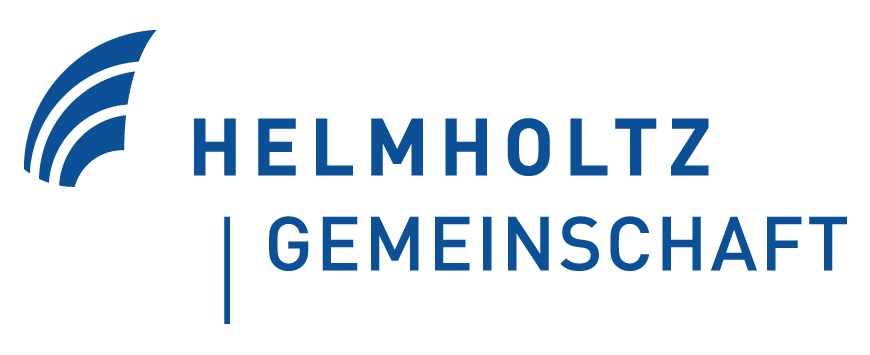23.04.2010 | Potsdam: The Helmholtz Association promotes the establishment of two new Helmholtz Graduate Schools and four Helmholtz Research Schools, in order to offer optimal supervision opportunities for new generation scientists during their Ph.D. studies. And one or more universities as cooperation partners are on board in each case. The Helmholtz Graduation Schools and the Helmholtz Research Schools will be supported for six years from the Initiative and Networking Fund of the Helmholtz Association with an annual sum of up to 500,000€.
"Young new generation scientists need expert guidance and a variety of further education facilities during their Ph.D. studies in order to successfully complete their doctorate and advance in different careers. This is what we want to achieve with the Helmholtz Graduate Schools and the Helmholtz Research Schools, which the Helmholtz Centres are developing in close cooperation with universities", says Professor Dr. Juergen Mlynek, President of the Helmholtz Association. From the submitted applications for the Graduate Schools an expert commission has now selected two Helmholtz Graduate Schools and four Helmholtz Research Schools which will be funded over the coming six years from the Initiative and Networking Fund. The Initiative and Networking Fund is fuelled by the annual growth, guaranteed to the Helmholtz Association by both the State and Province in the pact for research and innovation.
The Helmholtz Centre Potsdam – GFZ German Research Centre for Geosciences is setting up the Helmholtz Research School "GeoSim", with deals with the development of simulation methods for the research of the dynamics of earthquake processes and the mechanisms of global change, in cooperation with the Free University of Berlin as well as with the University of Potsdam. The Helmholtz Research School "GeoSim" is supported annually with 300,000€.
The Helmholtz Centre Munich – German Research Centre for Environmental Health (HMGU) was successful with two applications: The "Helmholtz Graduate School of Environmental Health" (HELENA), which the HMGU designed together with the Ludwig Maximilian University as well as with the Technical University of Munich is being funded with 500,000€ per year and shall offer structured training to approximately 400 Ph.D. students on the subject of illnesses, which are influenced by environmental factors and life-style. In addition the application for a Helmholtz Research School for "Biology and illnesses of the lung", in cooperating with the Ludwig Maximilian University, the Clinical Centre of the University of Munich and further partners, has been granted, and will be funded with 250,000€ annually.
The Karlsruhe Institute for Technology (KIT) can also set up a new Helmholtz Graduate School and a new Helmholtz Research School: The "KIT-Graduate School for Climate and Environment" (KIT-GRACE) is being established in cooperation with the Technical University of Darmstadt and is funded with 450,000 € annually. The Helmholtz Research School "Energy-related Catalysis" cooperates with the University of Heidelberg and can accommodate approximately 20 students working on the subject of catalytic procedures for the conversion and storage of energy. This Helmholtz Research School is being supported annually with 300,000€.
The German Aerospace Centre (DLR), in cooperation with the Technical University Berlin, is developing a Helmholtz Research School on the topic of "Safety Technologies", which is now being supported annually by the Helmholtz Association with 300,000€.
With the newly granted projects the Helmholtz Association is now promoting a total of eight Helmholtz Graduate Schools and eleven Helmholtz Research Schools from the Initiative and Networking Fund. Whereas a Helmholtz Research School is a small unit with a limited scientific programme for up to 25 outstanding doctoral students per year, a Helmholtz Graduate School provides an umbrella structure for all Ph.D. students of any one research centre combining interdisciplinary curricula.
The Helmholtz Association contributes to the solving of key and pressing questions within society, science and the economy through scientific excellence in six research areas: Energy, Earth and Environment, Health, Key Technologies, Structure of Matter as well as Aeronautics, Space and Transport. The Helmholtz Association, with almost 30,000 employees in 16 research centres and an annual budget of approximately 3 billion €, is Germany’s largest scientific organization. Its research work stands in the tradition of the famous natural scientist Hermann von Helmholtz (1821-1894).








![[Translate to English:] Torsten Sachs in front of a climate station on a field](/fileadmin/_processed_/3/9/csm__TorstenSachs_bearbeitet_GS_4a1365ef84.jpeg)

![[Translate to English:] left image flood at the Ahrtal: image from above, several houses are flooded; left image:: Heidi Kreibich;](/fileadmin/_processed_/4/4/csm_Bild2_9af0130e9f.png)



![[Translate to English:] Start der Vega Rakete](/fileadmin/_processed_/6/4/csm_20231201-kachel_Vega-VV23-launch_ESA-CNES-Arianespace_706716b68c.jpeg)









![[Translate to English:] Poster exhibition at the Brandenburg Hydrogen Day at the GFZ, some participants in the foreground](/fileadmin/_processed_/6/5/csm_Erster_Brandenburgischer_Wasserstofftag_GFZ_402fcec95e.jpeg)
![[Translate to English:] Group picture of the participants](/fileadmin/_processed_/9/4/csm_20231108_CAWa-Workshop-Tashkent_Gruppenbild_99ea779d8a.jpeg)

![[Translate to English:] [Translate to English:] Hörsaal](/fileadmin/_processed_/e/6/csm_H%C3%B6rsal_e21ac645fb.jpeg)


![[Translate to English:] The Delegations in the Historic Library on the Telegrafenberg. In the back there are from left to right, the Dutch Ambassador for Germany, Ronald van Roeden, the Dutch Minister for Education, Culture and Science, Robbert Dijkgraaf and the scientific director of the GFZ, Susanne Buiter.](/fileadmin/_processed_/d/b/csm_Kachel-2_9eba4b4212.jpeg)

